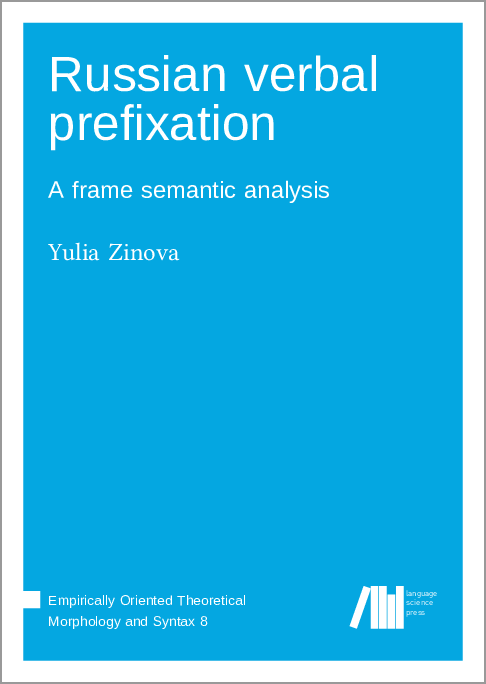We log anonymous usage statistics. Please read the privacy information for details.
Russian verbal prefixation: A frame semantic analysis
Synopsis
This book addresses the complexity of Russian verbal prefixation system that has been extensively studied but yet not explained. Traditionally, different meanings have been investigated and listed in the dictionaries and grammars and more recently linguists attempted to unify various prefix usages under more general descriptions. The existent semantic approaches, however, do not aim to use semantic representations in order to account for the problems of prefix stacking and aspect determination. This task has been so far undertaken by syntactic approaches to prefixation, that divide verbal prefixes in classes and limit complex verb formation by restricting structural positions available for the members of each class. I show that these approaches have two major drawbacks: the implicit prediction of the non-existence of complex biaspectual verbs and the absence of uniformly accepted formal criteria for the underlying prefix classification. In this book the reader can find an implementable formal semantic approach to prefixation that covers five prefixes: za-, na-, po-, pere-, and do-. It is shown how to predict the existence, semantics, and aspect of a given complex verb with the help of the combination of an LTAG and frame semantics. The task of identifying the possible affix combinations is distributed between three modules: syntax, which is kept simple (only basic structural assumptions), frame semantics, which ensures that the constraints are respected, and pragmatics, which rules out some prefixed verbs and restricts the range of available interpretations. For the purpose of the evaluation of the theory, an implementation of the proposed analysis for a grammar fragment using a metagrammar description is provided. It is shown that the proposed analysis delivers more accurate and complete predictions with respect to the existence of complex verbs than the most precise syntactic account.




